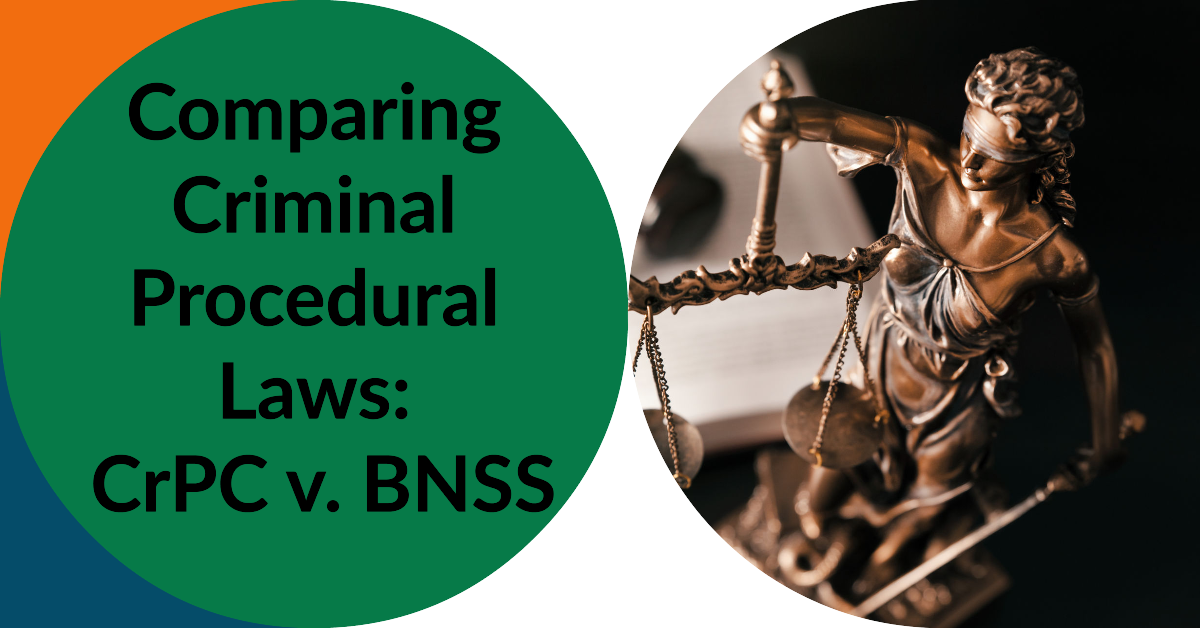
How to conduct Comparative Analysis of the Criminal Procedural Laws in India?
To effectively study both the Code of Criminal Procedure, 1973 (CrPC, 1973) and the Bharatiya Nagarik Suraksha Sanhita, 2023 (BNSS, 2023), one should begin by understanding their respective purposes and scopes.
Summarily speaking- CrPC, 1973 primarily governs procedural aspects within the criminal justice system, while BNSS, 2023 is a comprehensive framework focusing on citizen security and crime prevention. Also a comparative analysis reveals significant differences in approach and provisions.
CrPC, 1973 relies on traditional legal frameworks and court procedures, while BNSS, 2023 incorporates technological advancements and proactive measures for crime prevention. Detailed examination of relevant sections, such as those concerning arrest and detention, investigation techniques, rights of the accused, bail provisions, trial procedures, sentencing, and appeals, allows for a deeper understanding of the differences between the two laws.
By analyzing these sections side by side, scholars and practitioners can gain insights into the evolution of legal frameworks, shifts in societal priorities, and the incorporation of modern concepts and technologies in ensuring public safety and administering justice.
Sharing a tabular format here for a better understanding-
领英推荐
Here, this post is intended to encourage students to study both the Code of Criminal Procedure, 1973 (CrPC, 1973) and the Bharatiya Nagarik Suraksha Sanhita, 2023 (BNSS, 2023) is essential for several reasons.
Firstly, it provides a comprehensive understanding of the evolution of legal frameworks, showcasing the shift from traditional procedures to modernized approaches aimed at ensuring citizen security and crime prevention. Secondly, it equips students with valuable analytical skills, allowing them to compare and contrast different legal systems and identify the strengths and weaknesses of each. Thirdly, it prepares them for the dynamic nature of legal practice, where familiarity with diverse legal instruments is crucial for navigating complex cases and addressing contemporary challenges.
By incorporating the practice of comparative analysis into their studies, students can develop a nuanced understanding of legal principles, enhance their problem-solving abilities, and contribute meaningfully to the development of justice systems that are both fair and effective in safeguarding society.
#crpc #bnss #criminallaws #guidance #incorporation #newIndia #procedurallaws #laws #lawstudents #criminalJustice #investigation #technology #crime #justice